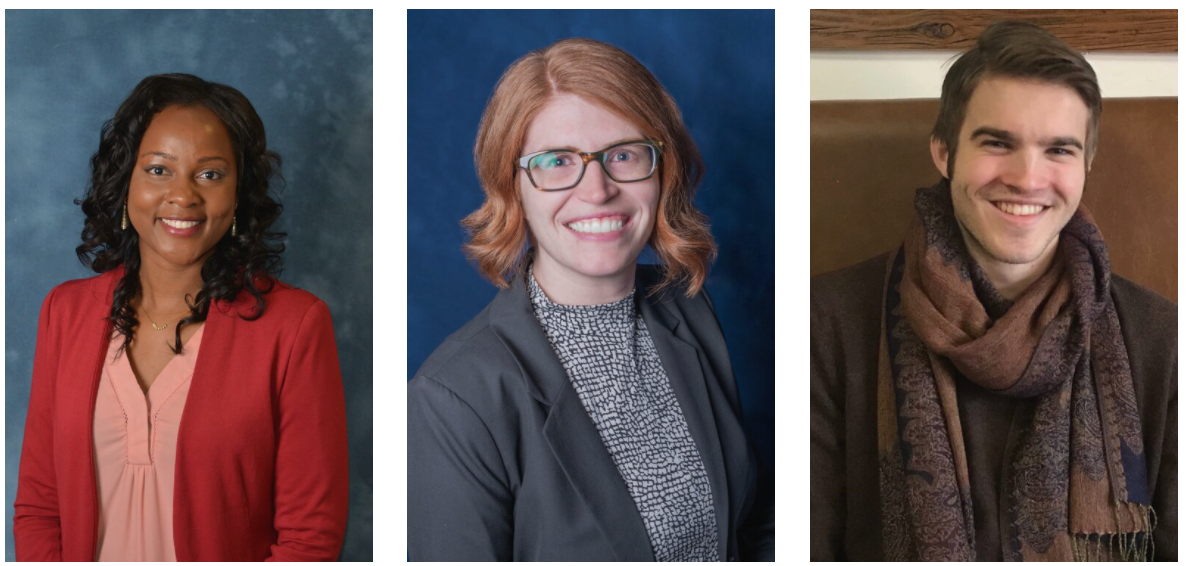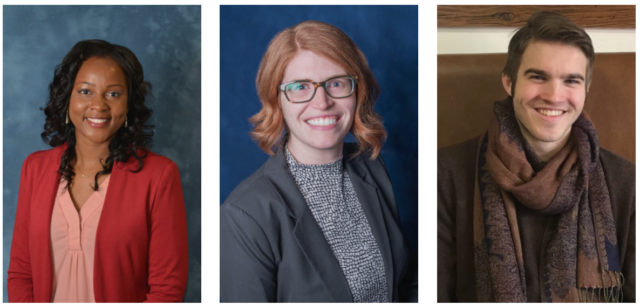Wesleyan Researchers Explore Social Media’s Effects on Emotional Well-Being during the Pandemic


A recent Wesleyan study showed that seeking out social media for emotional succor during COVID-19 did not improve emotional well-being among emerging adult college students.
The study, conducted by Royette Dubar, assistant professor of psychology; Nicole Watkins, postdoctoral fellow in psychology; and psychology major Grant Hill ’20, MA ’21 asked more than 600 emerging adults in college (18-to-29-year-olds) across the U.S. to complete two online surveys over a five-month period at the height of the COVID-19 pandemic.
“COVID has had significant implications for how we interact with other people and how we think about our well-being. What we are trying to understand is whether certain aspects of our individual personalities may have been influenced by the COVID experience; and also, whether specific personal characteristics may have influenced how we respond to the pandemic,” Dubar said.
“One of the most important findings was that having a lower sense of general well-being early on in the pandemic predicted several negative outcomes, including increased insomnia symptoms over time. Unfortunately, many emerging adults don’t seek out help when they are struggling with mental health challenges, such as depression,” Watkins said.
Dubar and her team attempted to measure well-being through a variety of factors including participants’ anxiety symptoms, sense of self-control, overall health, and self-reported symptoms of depression. To measure sleep, the team asked about both length and quality, which was an important part of the analysis.
The lower your sense of well-being, the more likely you were to reach out broadly on social media for emotional relief, which, unfortunately, did not have any effect on making you feel better over time, according to survey results. They also found that people who experience better sleep at baseline continued that trend throughout the study and interestingly, reported fewer negative consequences of COVID-19. Those who had poor quality sleep earlier on in the pandemic continued having more sleep problems over time.
“In our study, negative COVID experiences included perceived loss of opportunities to socialize with friends, missed work and travel opportunities, and whether or not they or their friends or family had gotten infected with or had been exposed to COVID; so we captured a wide range of negative experiences,” Dubar said.
Dubar and Watkins also sought to learn how and why people used social media during this fraught time. Were they seeking to make practical connections, arranging to meeting with friends or checking up with loved ones? Or were they using social media to regulate their emotions?
“We were also trying to find out whether people were using social media in a problematic way,” Dubar said. “Researchers are realizing that simply asking people to report the amount of time they spend on social media isn’t a strong indicator of the role that social media plays in our lives because it has become so prevalent across all age groups” she said. Instead, it is more important to try to understand what motivates people to seek out social media and what kinds of activities they are engaging in on social media.
Study participants who felt a greater sense of well-being were less likely to seek out social media for emotional reasons. “And, if you were motivated to seek out social media for emotional reasons, we found that it didn’t actually predict changes in your well-being,” Dubar said.
Generally, people who used social media as a coping mechanism did not reap any emotional benefits. For many emerging adults, social media is touted as a solution to isolation. Dubar advocates thinking about social media as simply another tool – there is nothing magical about it that will improve anyone’s lifestyle. And if you struggle with mental health issues, it does not seem to provide any relief.
“I think it is important to think about social media not just in terms of how much time is spent, but also how you interact with it. Are you actually reaching out to folks who can provide you with the kind of deep, meaningful emotional support you need?” Dubar said.
For more information on Dubar’s study, visit https://www.spalabwesleyan.com/
To follow Dubar on Twitter go to @SpaLabWesleyan. To follow Watkins, visit @DocNicWat.

